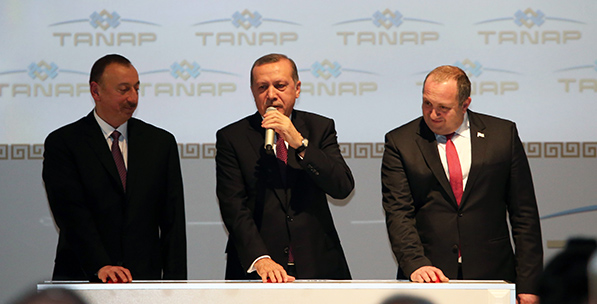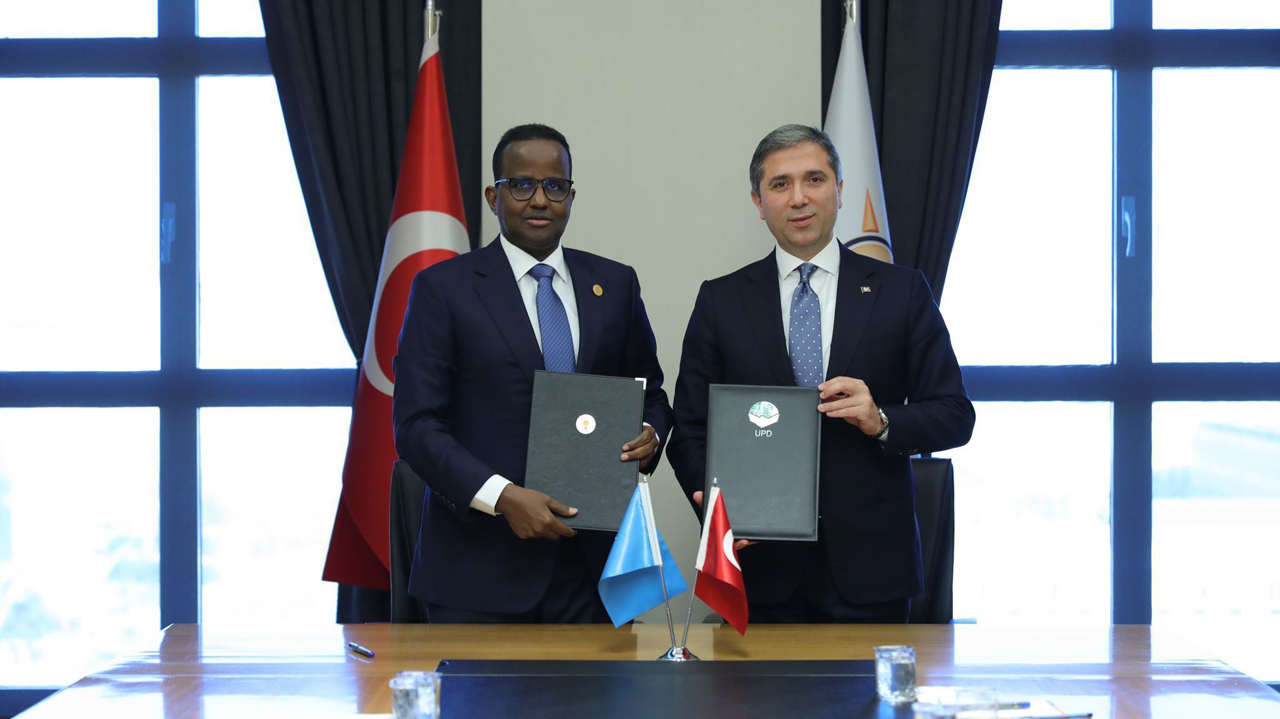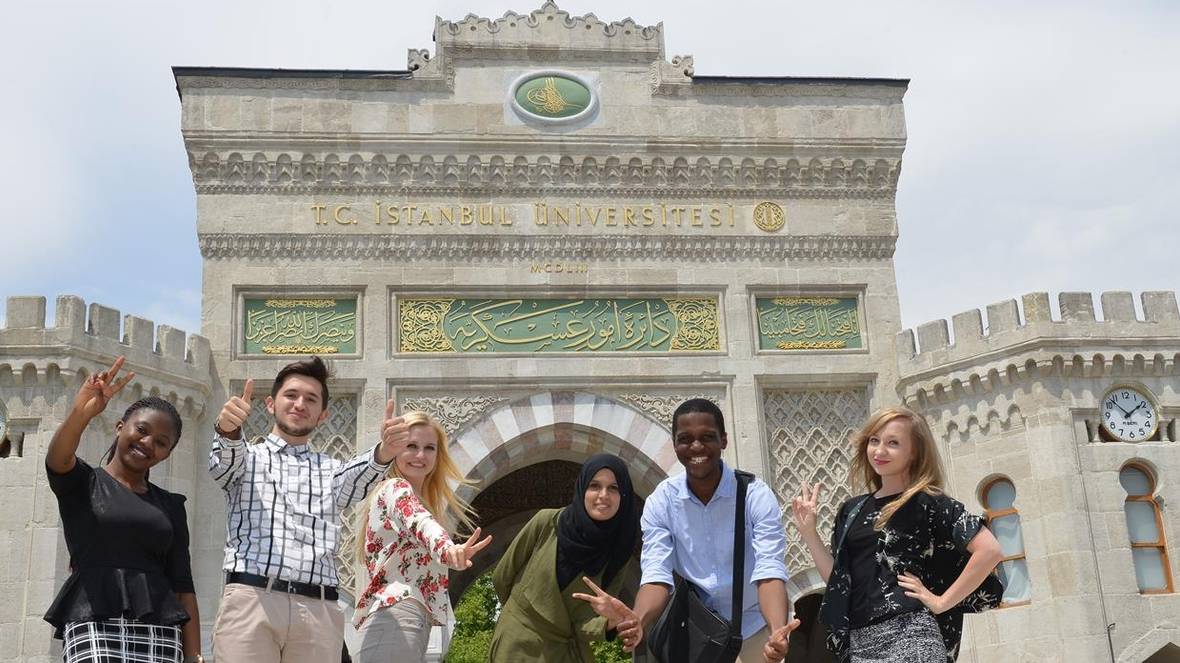Following several weeks of rather shallow discussions coloring Turkish economic public dialogues concerning the monetary policy decisions of the Central Bank and reflections of global volatilities in interest and exchange rates, it came like a deep sigh of relief. The inauguration ceremony of the Trans-Anatolian Natural Gas Pipeline (TANAP) in the presence of the Turkish, Azeri and Georgian presidents reminded friends and foes alike of the bright prospects of Turkey as a rising economic power and regional energy hub. TANAP is a strategically important project to ensure energy supply security for mainland Europe, as it will carry the rich natural gas reserves of the Shah Deniz field in the Caspian basin (estimated to be around 2.6 trillion cubic meters) to Europe passing through 20 cities across Anatolia on the way.
After almost three years and much diplomatic fine-tuning following the initial agreement, the massive pipeline project worth $11 billion with the greatest length and radius to be built on Turkish soil reached the breaking ground and construction stage. Building on previous examples of strategic energy collaboration between Turkey and Azerbaijan in the context of the Baku-Tbilisi-Ceyhan (BTC) Oil and Baku-Tbilisi-Erzurum (BTE) natural gas pipelines, the construction of TANAP will take the Turkish-Azeri strategic partnership to a whole new level by linking with Trans-Adriatic Pipeline (TAP) on the Greek border. When the pipeline becomes operational in 2018 with an estimated initial gas flow of 16 billion cubic meters per year, the Southern Gas Corridor will provide a crucial alternative to the (Russian-Ukrainian) Northern Corridor, which recently witnessed frequent interruptions due to both violent conflicts and political wranglings with the West. Therefore, TANAP will make a substantial contribution to the geostrategic importance of Turkey in the eyes of EU leaders as they will gradually gain relief from Putin's energy-based political leverage and blackmail tactics.
As President Erdoğan stressed at the inauguration ceremony, Turkey adopted a carefully calibrated approach to pipeline politics in the last decade by simultaneously cooperating with many countries, without undermining the prospects of alternative projects. In this context, following the cancellation of the preparations for the South Stream Project by Russia in favor of a projected "Turkish Stream," Turkey's strategic energy collaboration with Azerbaijan, Russia and the Regional Administration in Iraq are maintained along autonomous trajectories. From the perspective of corporate relations, the operational stakes of the TANAP project signify a crucial partnership among the Azeri state energy company SOCAR, Turkey's BOTAŞ and British Petroleum with a new company with headquarters in the Netherlands. Therefore, TANAP represents a truly global project with significant ramifications for the global energy sector, as well as a perfect opportunity for the corporate maturation of BOTAŞ as a global energy player.
Given the volatility in global financial markets and grim growth expectations for the world economy in 2015 due to shrinking liquidity, the massive construction effort for TANAP will provide a much needed boost to the Turkish real economy. It is expected that over 1.1 million tons of steel required for the pipeline project will be produced in Turkey, thereby creating substantial demand for the local steel producers. Furthermore, when the construction stage begins, approximately 15,000 new jobs will be created at a time when increasing unemployment figures are frequently cited by domestic and international circles to wrongly claim that a macroeconomic crisis is looming on the horizons for Turkey. As the structural transformation towards a production-oriented macroeconomic framework is underway, ensuring energy supply security and reducing energy costs for manufacturing industries is extremely vital. Along with ongoing nuclear power plant projects and increasing investments in renewable energy sources, landmark projects such as








